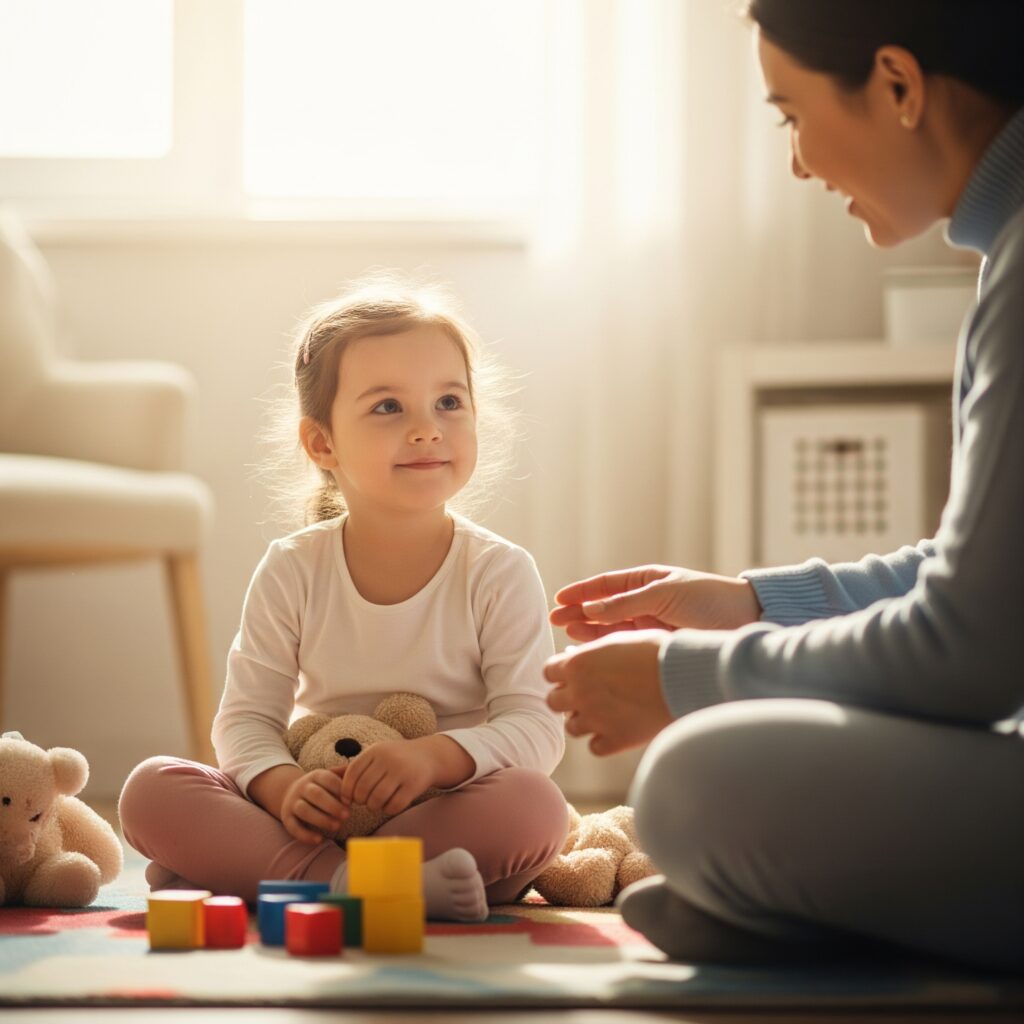When a young child is separated from a parent or caregiver, the pain runs deep. It brings confusion, fear, and a sudden loss of safety. This kind of trauma can shape how they see the world and how they learn to trust others.
If you’re caring for a child in foster care, you’ve likely seen the signs. You know they’re hurting, but you may feel unsure about how to help. This is where foster care support matters most.
In this post, we’ll break down what trauma-informed care looks like in foster settings and how you can use it to make a real difference in a child’s healing.
What Is Child Separation Trauma?
Child separation trauma happens when a child is suddenly and unexpectedly taken from their primary caregiver. This could be a parent, grandparent, or any familiar figure the child relies on for safety and love.
For children in foster care, this trauma often runs deep. It’s not the same as normal separation anxiety that most kids experience from time to time.
This kind of trauma comes from abrupt, prolonged, or frightening separation, like when a child is removed from their home, sometimes without explanation, and placed in a new, unfamiliar environment.
Causes of Child Separation Trauma
Children in foster care often carry invisible wounds from past separations.
Here are some of the most common situations that can lead to child separation trauma:
● Parental Incarceration or Deportation
● Military Deployment
● Hospitalization or Serious Illness
● Child Protective Services Intervention
● Natural Disasters or Conflict
● Divorce or Family Breakup in High-Conflict Situations
Effects of Child Separation Trauma
As a foster parent or caregiver, it’s critical to understand how this trauma might show up in their daily lives.
Here’s what you might see:
● Big Feelings, Big Reactions: Children may feel anxious, sad, fearful, angry, or shut down completely. You might notice mood swings, tantrums, or emotional outbursts that seem too intense for the situation.
● Struggles with Attachment: After losing a primary caregiver, a child might become clingy, desperate for reassurance or the opposite. They may push people away and refuse to trust others.
● Challenges with Learning and Focus: A child may have trouble paying attention, learning new things, or handling schoolwork. They may seem distracted, restless, or uninterested in activities they once enjoyed.
● Physical Signs of Stress: Emotional pain often shows up in the body. A child may complain of headaches, stomachaches, trouble sleeping, or getting sick more often.
● Low Self-Esteem: Children might blame themselves for what happened. They may believe they’re unlovable, broken, or somehow at fault for being taken away.
Helping Children Heal from Separation Trauma: Practical Strategies for Caregivers
Children need understanding, patience, and a trauma-informed approach that helps them feel secure and supported as they process what they’ve been through.
Here’s what you can do to help a child begin to heal:
● Build a Safe, Stable Environment: Children need to feel physically and emotionally safe. This means stable housing, clear routines, and protection from harm or further trauma.
● Be Consistent and Present: Kids need at least one steady, caring adult they can rely on. Show up, stay calm, and offer comfort when they’re upset.
● Support Emotional Expression: Let kids know it’s okay to feel sad, angry, scared, or confused. Say things like, “It’s okay to feel upset. I’m here for you.”
● Get Professional Help: A therapist will use approaches like Trauma-Focused Cognitive Behavioral Therapy (TF-CBT) to help your kid process difficult memories and learn coping skills.
They can also guide a child through play therapy to explore feelings, manage conflicts, and build healthy coping skills.
Discover How BMH Consulting Supports Foster Families with Care Strategies That Work
Separation and change are never easy. Whether you’re a foster parent or someone supporting a child through transition, you don’t have to face the challenges alone. At BMH Consulting Services, we offer compassionate, culturally sensitive psychotherapy for both children and adults.
Our goal is to help families understand each other, manage emotional and behavioral challenges, and begin to rebuild trust together. Schedule an appointment with us today.
Disclaimer: This blog post is intended for educational purposes only and is not a substitute for professional medical advice. Always consult a qualified mental healthcare provider before starting any new medication or therapy. Beverley Mack Harry Consulting Services, Inc. is not responsible for any injuries or damages resulting from the use of information provided in this post.


